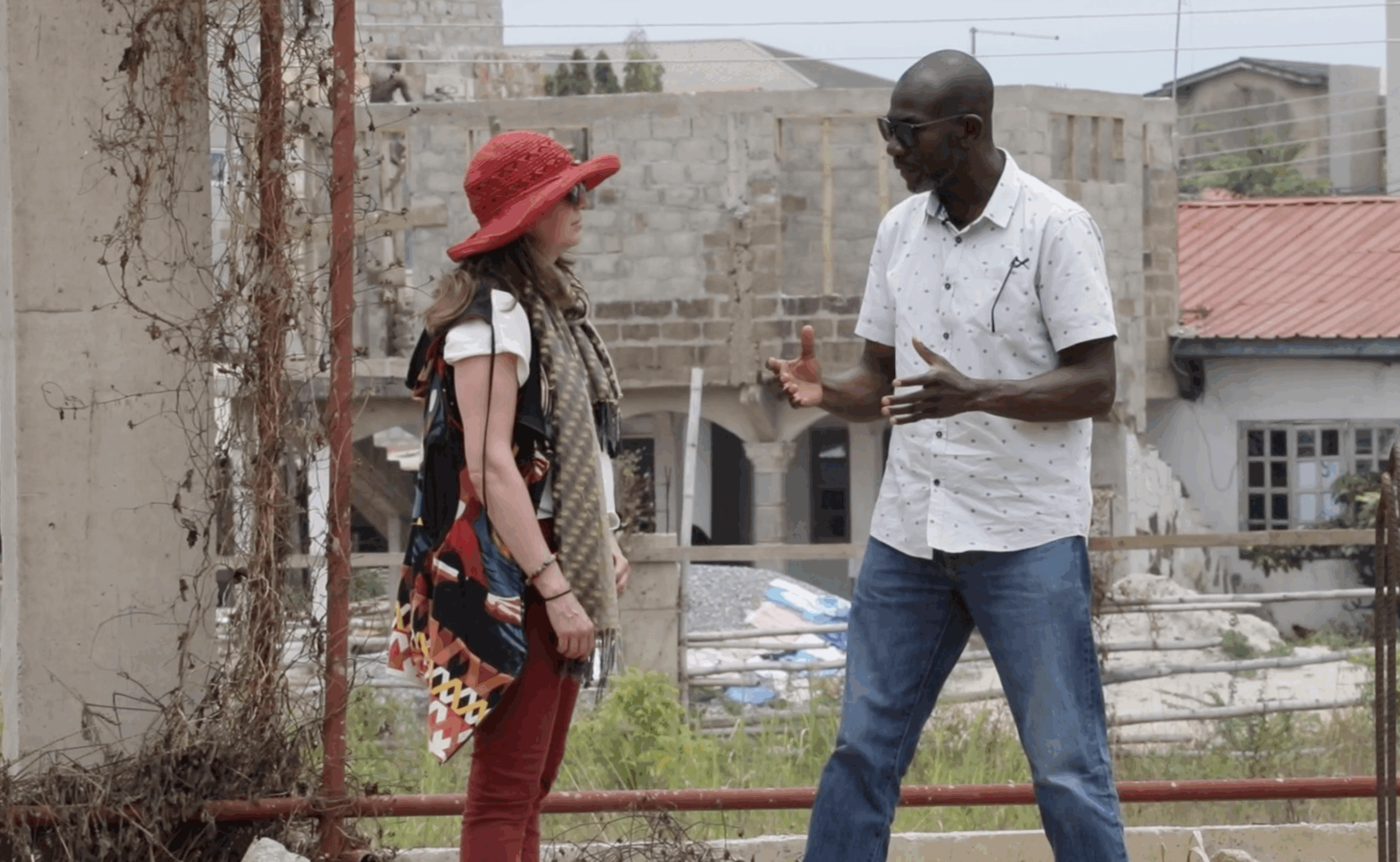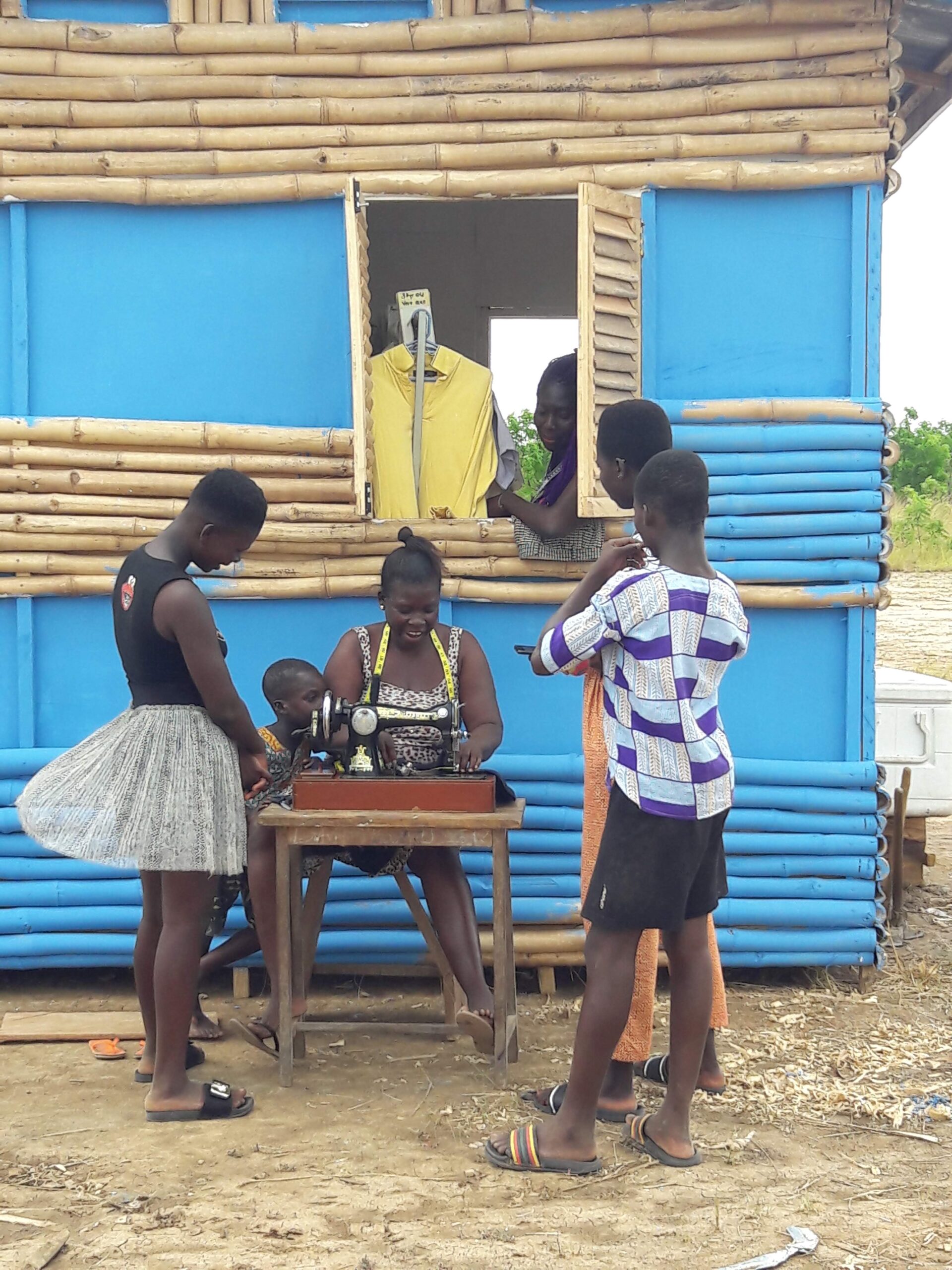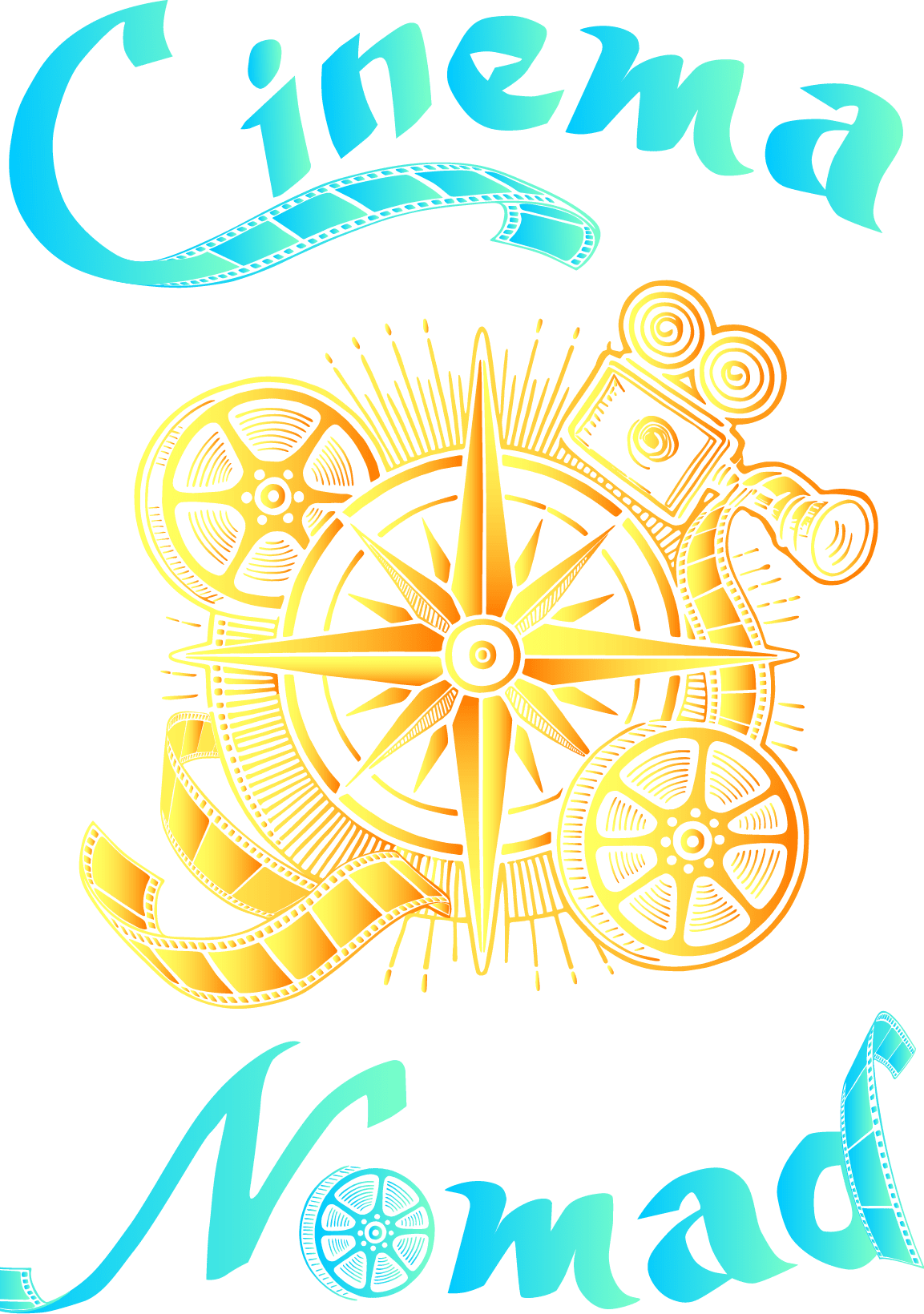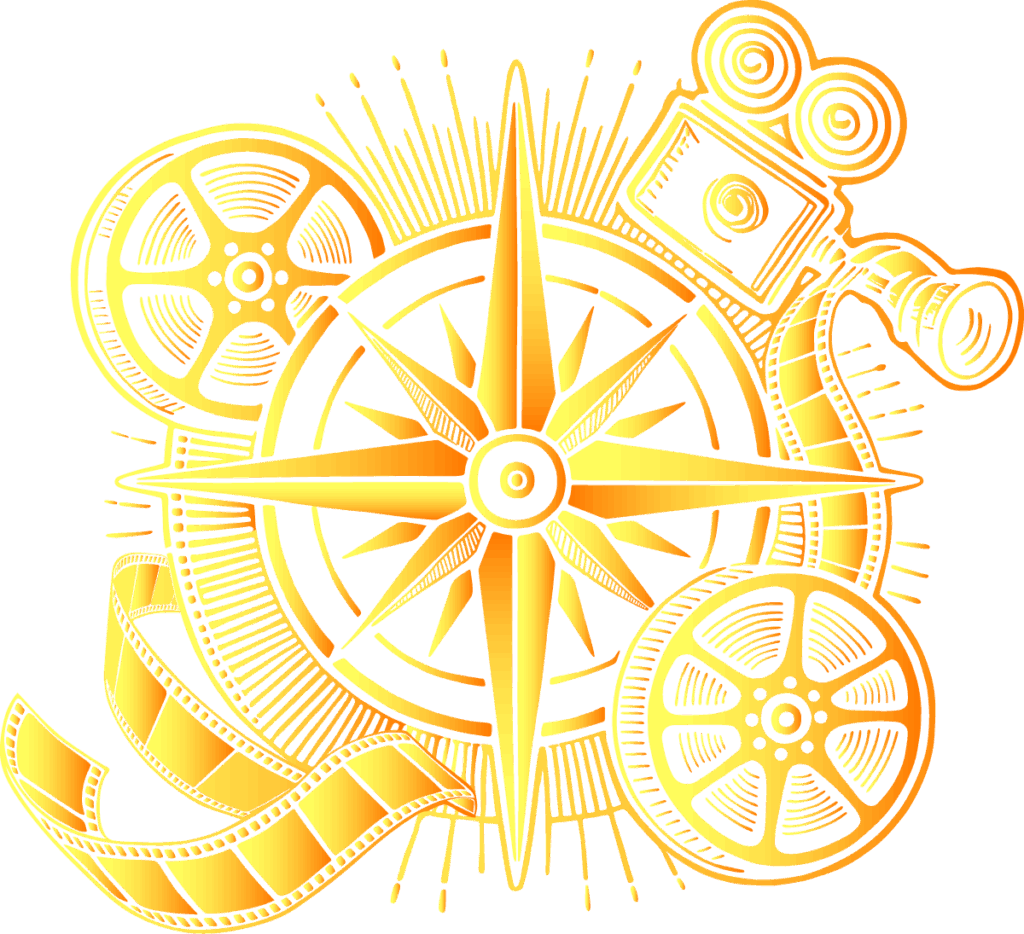
Ghana
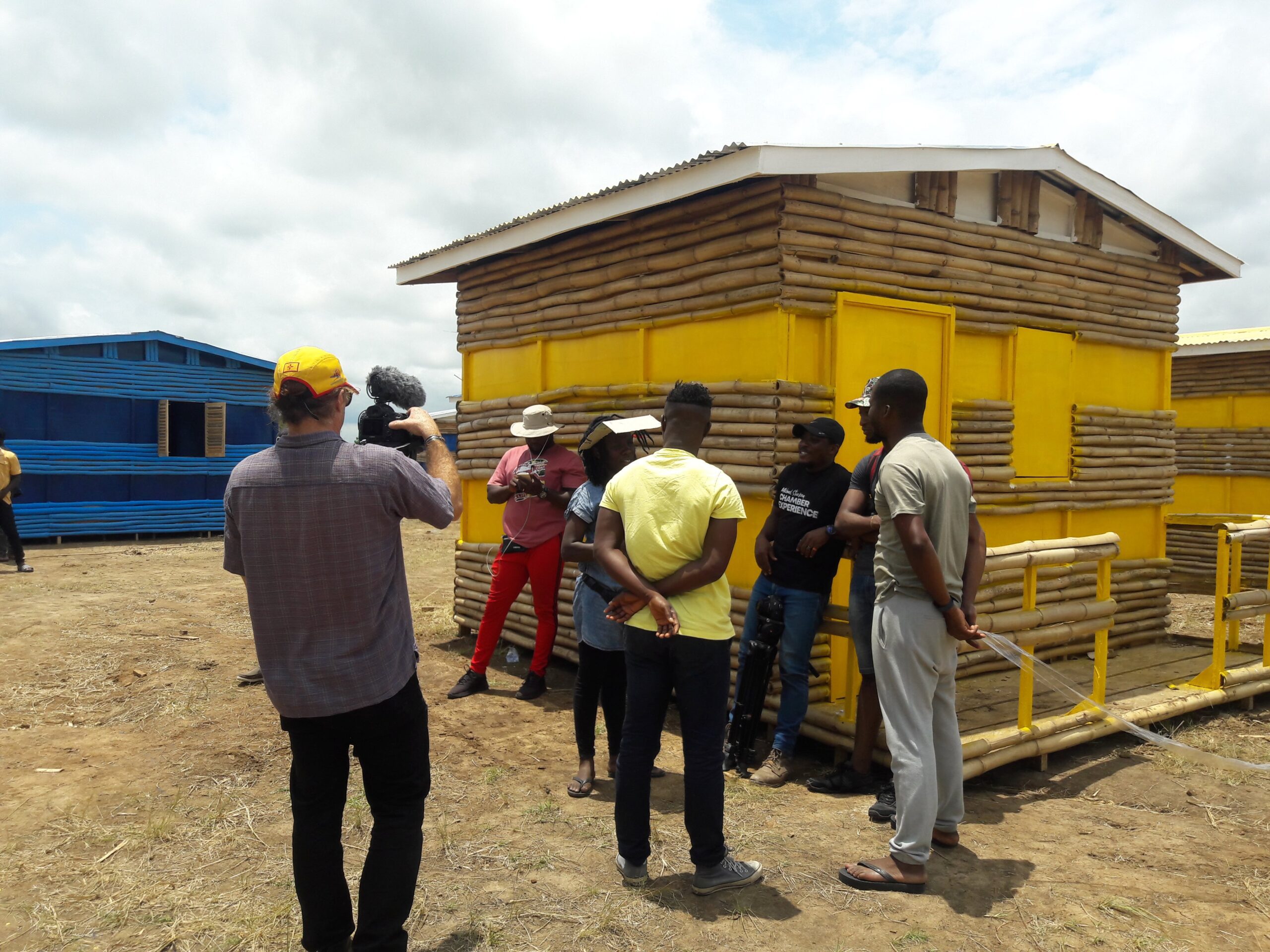
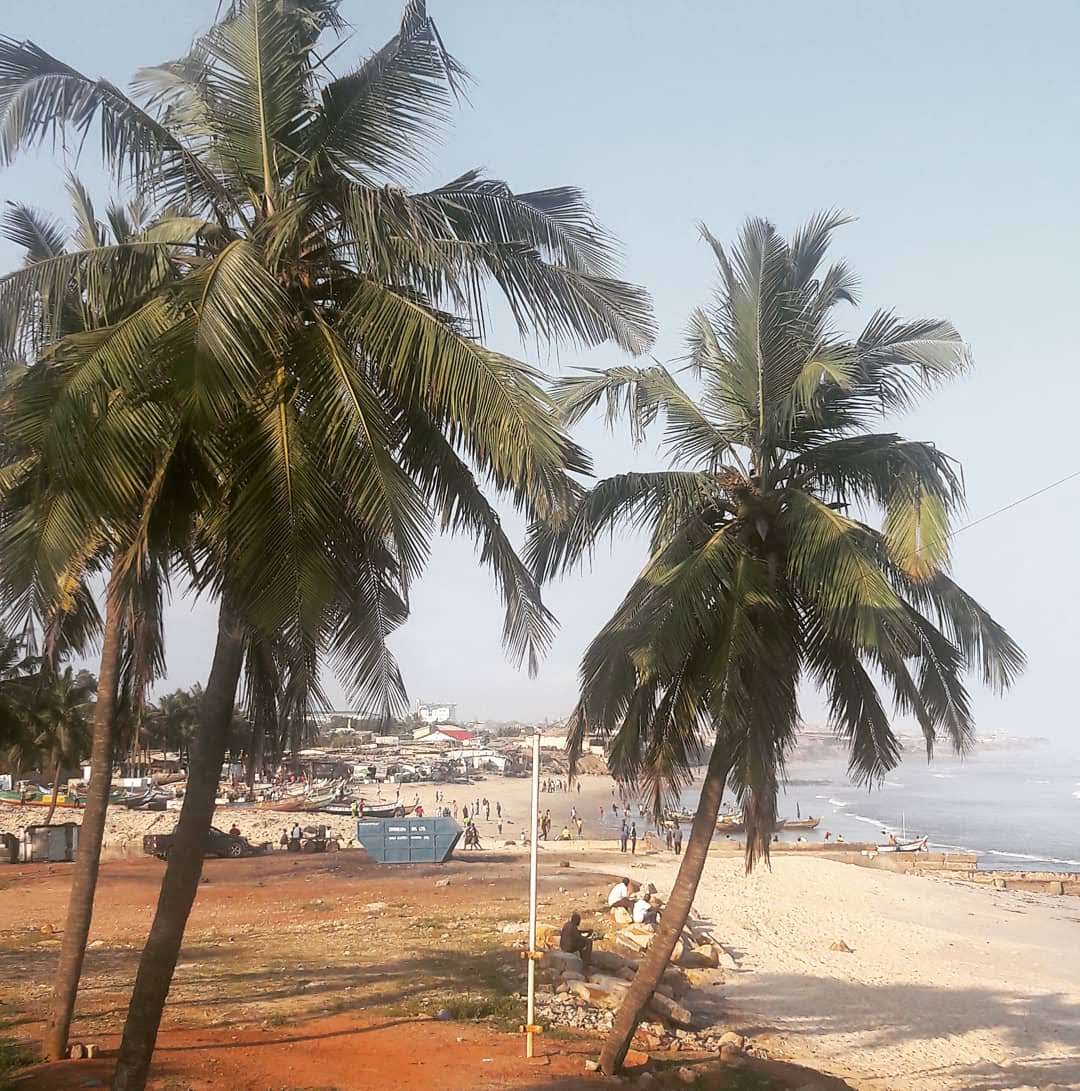
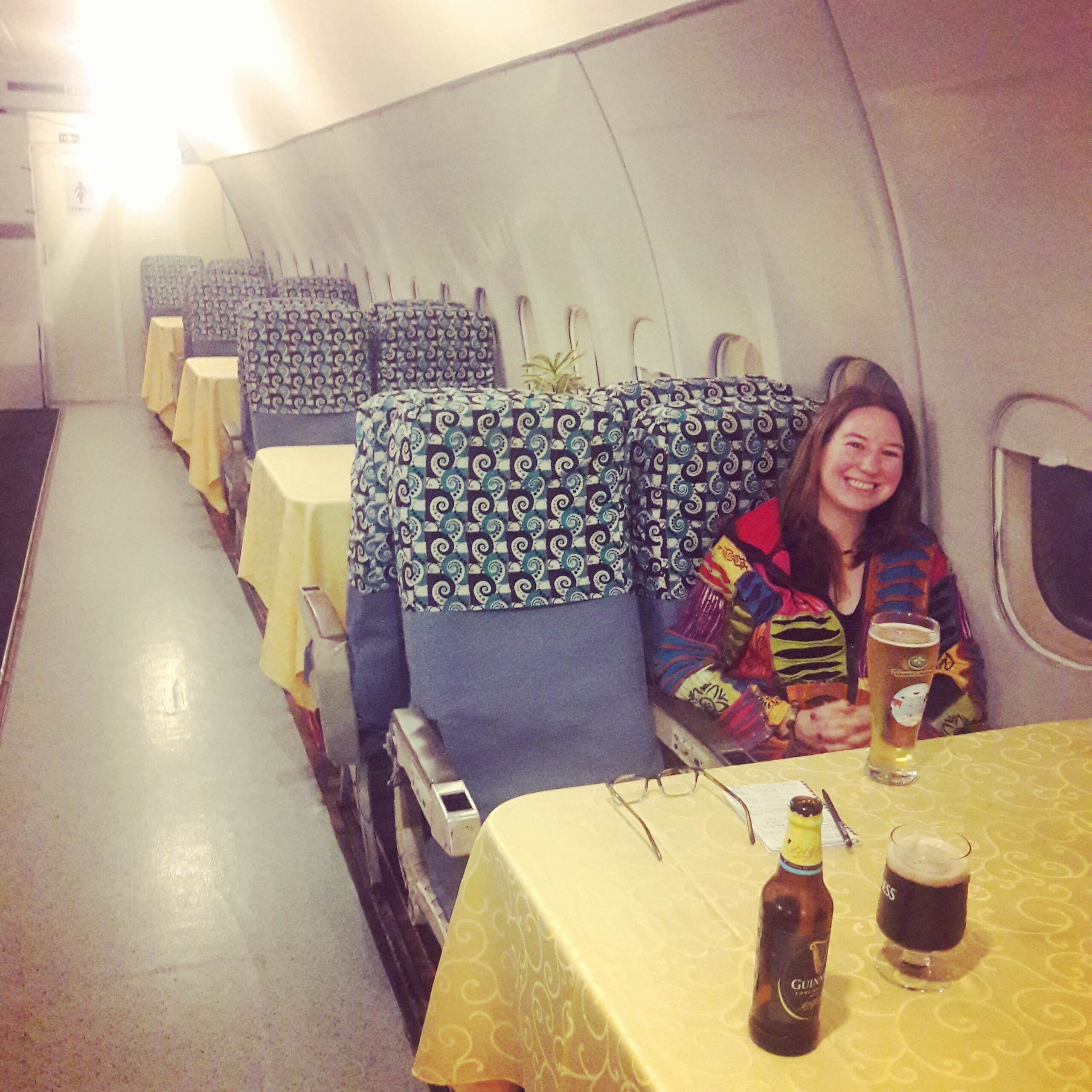
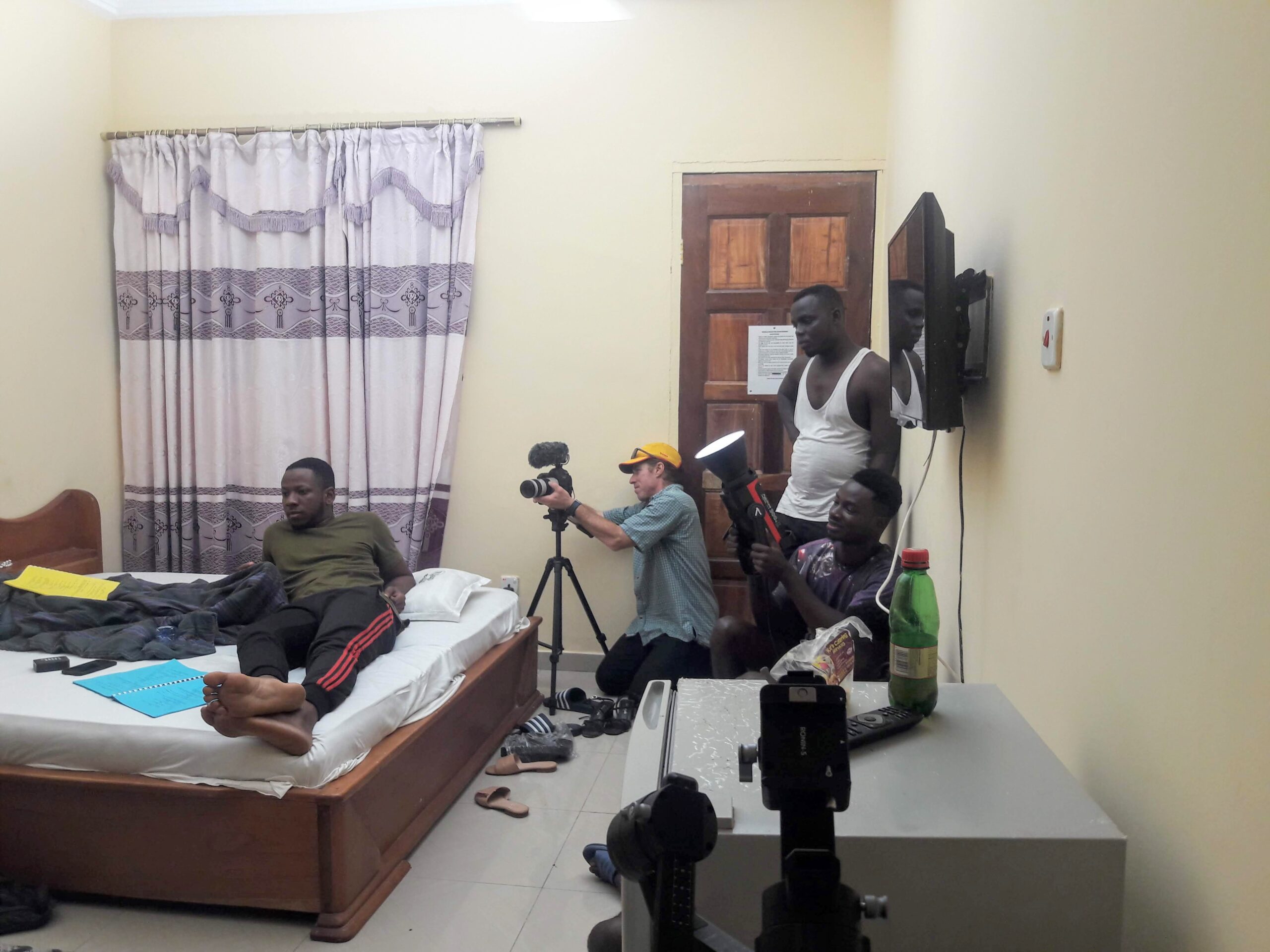
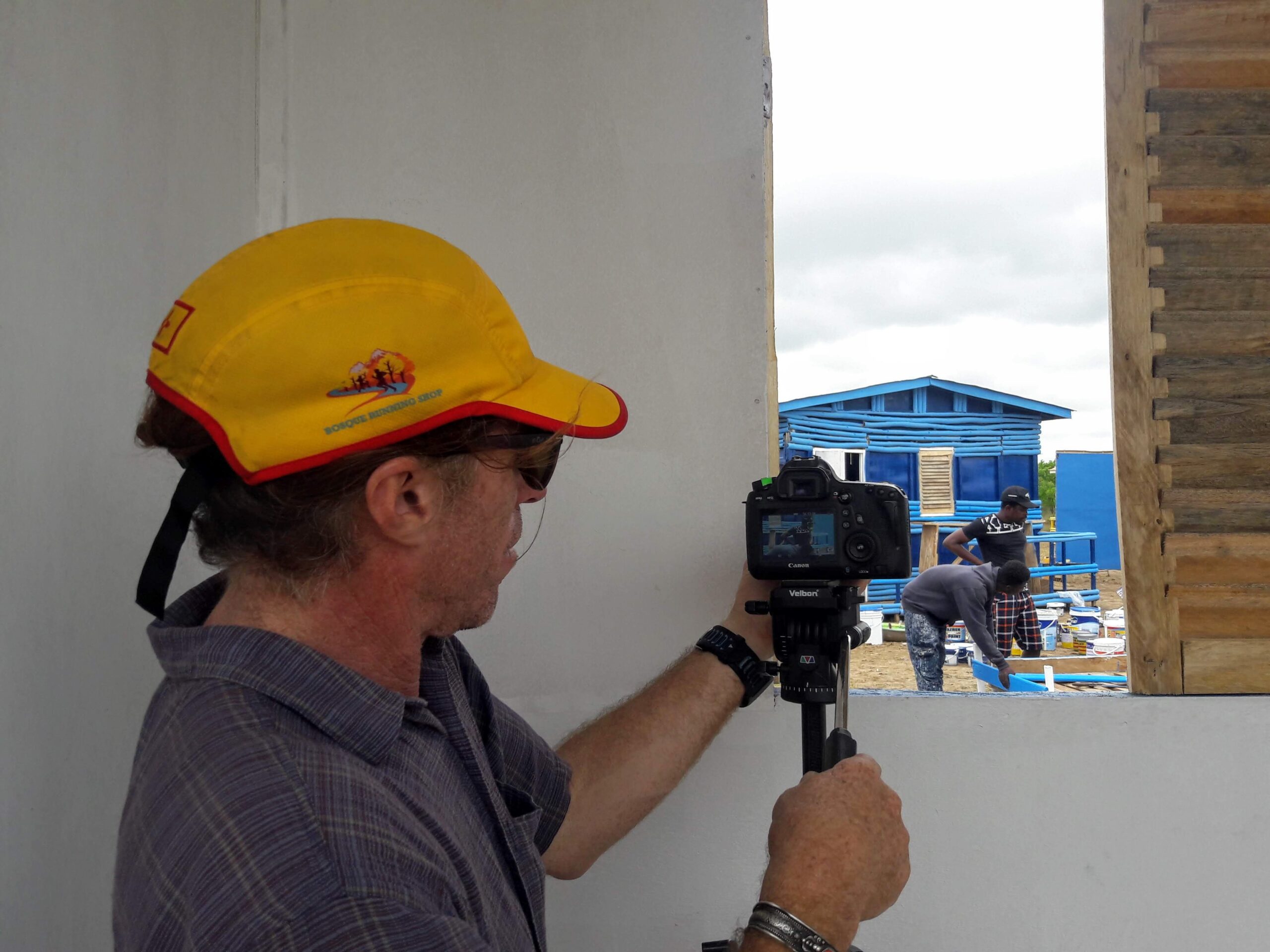
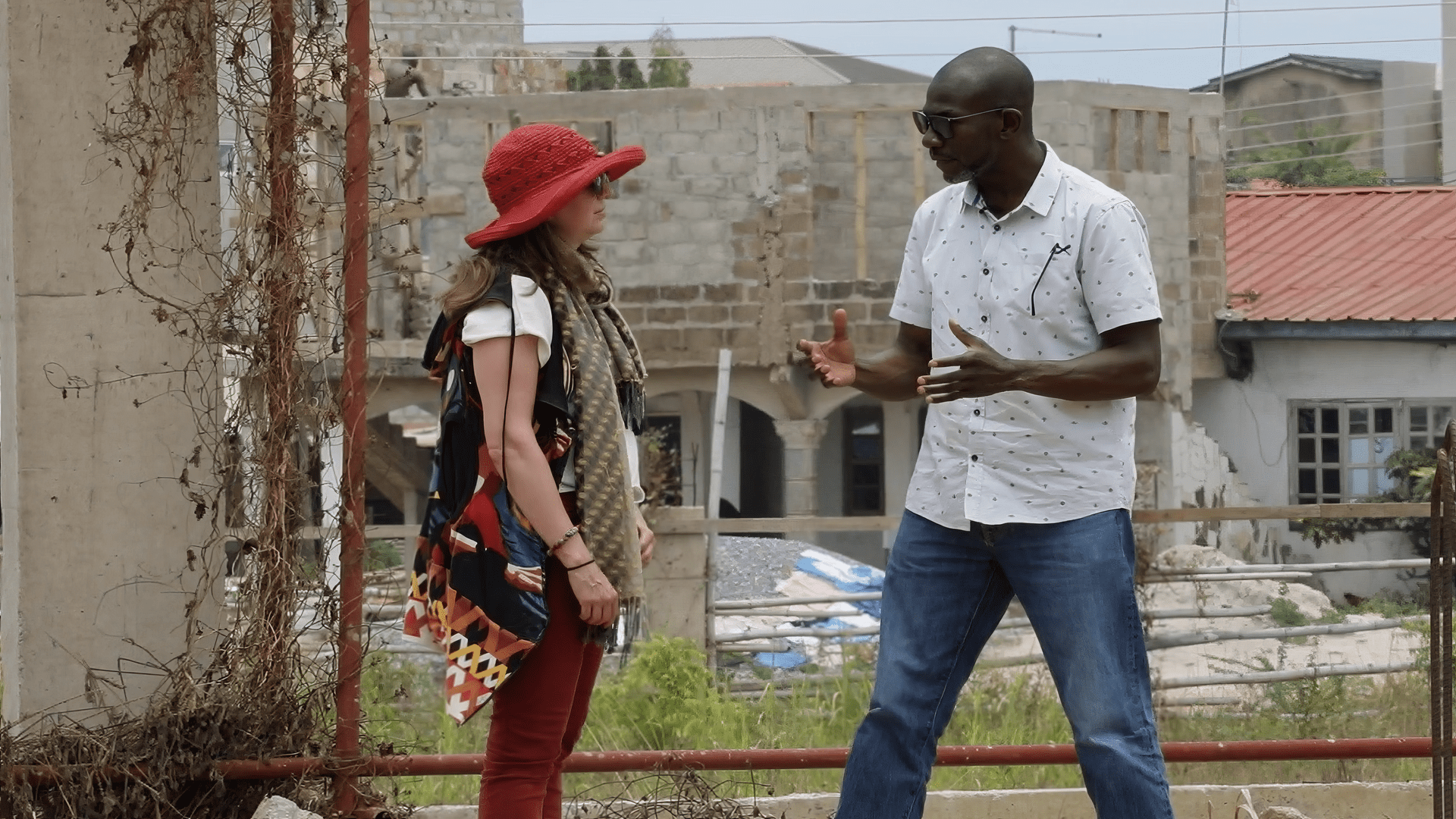
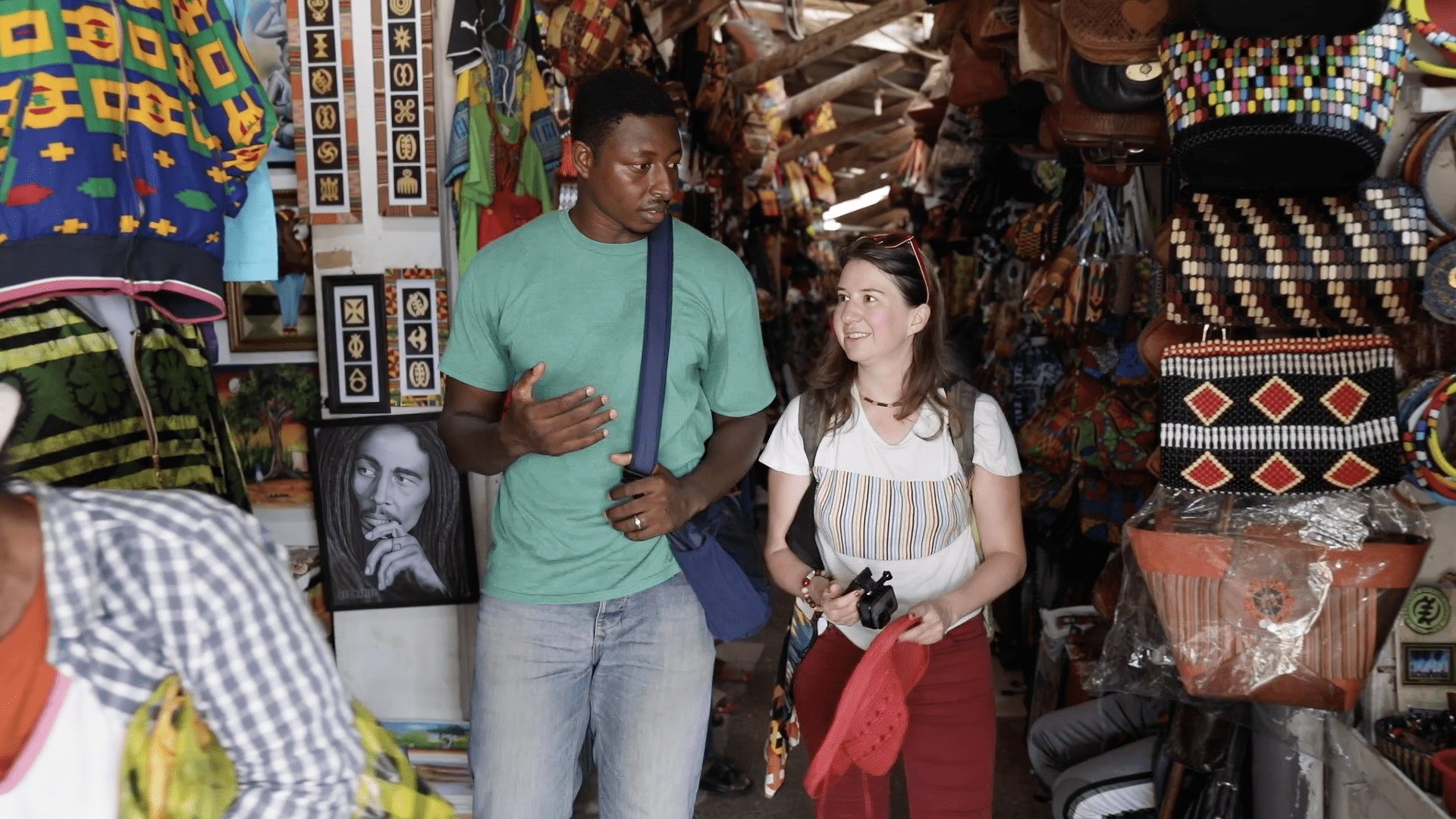
105: Ghana
We travel to Ghana, the first country in Sub Saharan Africa to gain independence. We visit Peter on the set of his fourth feature film. In Accra, we catch up with the voices shaping Ghana’s film industry: Juliet, a prominent filmmaker and festival director; Alpha, a passionate film scholar; and Carl, a documentarian interested in exploring the history of Ghana in his films
Where Were You at 33?
Name: Peter Sedufia
Place: Accra, Ghana
Age at Filming: 34
Personal logline: “A young man who was raised by a family with nothing, but is determined to change his narrative and become an inspiration to his family and siblings.”
Directed by Peter:
“Keteke” (2017), “Master & 3 Maids” (2018), “Sidechic Gang” (2018),
“Away Bus” (2019), “2 Days After Friday” (2019), “Aloevera” (2020), “Tanko Villa” (2022), “One Night Guests” (2024)
Peter’s “desert island” films: “3 Idiots” (2009) directed by Rajkumar Hirani, “Coming To America” (1988) directed by John Landis, “Titanic” (1997) directed by James Cameron, “Avatar” (2009) directed by James Cameron, “Mr. Bones” (2001) directed by Gray Hofmeyr
Follow Peter: petersedufia.com
Peter’s YouTube
Peter’s Instagram: @petersedufia
Peter’s Bio: Peter studied at the National Film and Television Institute in Ghana and graduated with a BFA in film directing. He also holds a diploma in business management and administration. He is a writer and director who has directed shorts, TV series, and numerous award winning feature length films, including, “Keteke” (2017), “Sidechic Gang” (2018), “Away Bus” (2019) and “Aloe Vera” (2021). In 2017, Peter founded the Director’s Call workshop series to offer young and aspiring filmmakers the opportunity to be coached and mentored by industry professionals.
Cinema of Ghana
Cinema first came to the Gold Coast in the 1920s, but it was only accessible to the British elites. The average Ghanaian would not have been able to view moving pictures.
The Brits eventually caught on to the power of cinematic storytelling and decided to use it to their advantage: they made their own propagandistic films in attempts to “educate” and “civilize” the Ghanaian natives.
Britain eventually created the Gold Coast Film Unit, which was a branch of a larger Colonial Film Unit working to “inform” the people of their colonies to British ways of civilization.
The Gold Coast Film Unit made films about proper hygiene and health practices, growing crops, educating youth, how to teach proper English, and the likes. At first, these films were only made by white, male colonists, but eventually (around 1949), the unit recruited three Ghanians to start training a few locals in film production.
At first, the Gold Coast Film Unit films were only being seen by people living in urban areas, and so the British established the “Bedford buses” to disseminate information to the more rural parts of Ghana. They packed up projectors and traveled by bus with their films to the rural villages.
After Ghana gained its independence in 1959, and Kwame Nkrumah took over as head of state,
Nkrumah saw the potential of cinema to change minds and attitudes, and he founded Ghana’s national film industry vis a vis the Ghana Film Industry Corporation in 1964, where he put a great emphasis on educating the future filmmakers of Ghana.
He took a play from the British books: essentially, to use cinema like the “colonial masters” before him, to change the mindset of a nation and form it in his own image. Nkrumah wanted Ghanians to be proud of their history and heritage, and he felt cinema was the best tool to express and spread these messages. He also wanted Ghanians to be the ones behind the camera, so he sent his people abroad to learn the craft of filmmaking, to be educated and trained by the best in the field.
His purpose was to reverse the “teachings” of the British colonists and use filmmaking to bring pride to being a Ghanaian, an African, and to tell Ghanaian stories on their own terms. This was a wonderful heritage that Nkrumah left his people.
This also meant that the only people making films at the time were making it by the government, through the government, and for the government. It would take decades before an actual independent industry would emerge in Ghana.
By 1966, when Nkrumah was on a state visit to China, there was a military coup ousting Nkrumah’s lifetime rule, and between 1969 and 1979 there were a series of coups which transferred power back and forth between Ghana’s top military and government officials vying for authority. This led to a period of military dictatorships and strong social conservative rule that left no room for going out to the cinema, and the film industry tanked, practically disappearing for the next several decades after Nkrumah’s rule.
The film production company Nkrumah formed eventually was sold to a Malaysian firm, who converted many of the old cinemas into churches. Still today, you can find church services held at run down, abandoned cinemas in Ghana.
As a result of the loosening restrictions on its population of Jerry Rawlings’ presidency, independent filmmaking emerged in Ghana in the early 1980s, with filmmaker Kwah Ansah’s feature film debut in 1981, “Love Brewed in the African Pot,” now considered the first independent film in Ghana’s history, followed up by King Ampaw’s first film, “The Road to Accra” in 1982.
What allowed filmmakers such as Ansah and Ampaw to make their films was the introduction of the VHS recording technology which arrived on the scene in 1976. Ghana is said to be the first country in the world to make feature films on VHS.
The filmmakers of the 1980’s and 1990’s made their own films on their own terms, cheaply, using this new digital technology. They were producing so much content, that their Nigerian neighbors started traveling to Ghana to learn and collaborate with the inventive Ghanaian filmmakers.
These collaborations between Nigeria and Ghana is quite possibly what led to the rise of the Nigerian film industry, now known as Nollywood, which is the second largest producer of films in the world, second only to India (with Hollywood resting at number three). (This ranking is based on the number of films produced, and Nollywood produces an average of 50 films a week.)
These early independent filmmakers paved the way for a future generation of Ghanaian filmmakers to emerge, and the 2000s has seen a “New Wave” of Ghanaian filmmaking, with filmmakers such as Blitz Bazawule (“Burial of Kojo”), Kwabena Gyansah (“Azali”), Juliet Asante (“Silver Rain”), Anita Afonu (“Perished Diamonds”), and of course, Peter Sedufia (“Keteke,” “Aloevera”), our featured director for Cinema Nomad.
Some Websites that discuss Ghana Cinema:
https://akoroko.com/perished-diamonds-ghana-film-history/
https://demandafrica.com/entertainment/ghollywood-ghana-film-industry/
Ghana Ministry of Tourism (Film):
https://www.motac.gov.gh/film/
Ghana’s National Film Authority:
https://nfa.gov.gh/
Suggested Films From Ghana
“Love Brewed In The African Pot” (1980) directed by Kwah Ansah
“Kukurantumi: The Road To Accra” (1983) directed by King Ampaw
“Heritage Africa” (1989) directed by Kwah Ansah
“Silver Rain” (2015) directed by Juliet Asante
“Keteke” (2017) directed by Peter Sedufia
“The Burial Of Kojo” (2018) directed by Blitz Bazawule
Cinema Landmarks To Visit:
National Theatre of Ghana
https://www.nationaltheatre.gov.gh/history/
Popular filming locations in Ghana
https://ghanafixer.com/filming-locations-in-ghana/
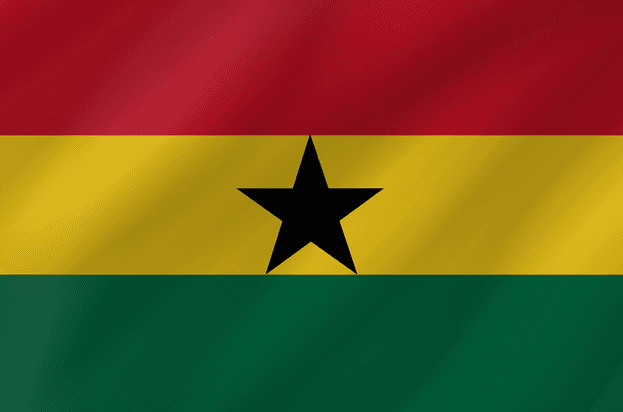
Official Name: Republic of Ghana
Population: 28 million
Capital City: Accra
Form of Government: Constitutional Democracy
Official Languages: English, Akan, Moshi-Dagomba, Ewe, Ga
Currency: Cedi
Borders: Côte d’Ivoire, Burkina Faso, Togo, and the Gulf of Guinea
About Ghana
Ghana is known as a lot of things amongst travelers: it has been called, “Africa for Beginners,” in the sense that it is one of the easiest and most welcoming countries on the African continent for tourists to travel to. It has also been called, “West Africa’s Golden Child,” or “the gateway to West Africa” and has been named one of “Africa’s greatest success stories.”
Ghana was the first independent nation and first democracy in Sub-Saharan Africa, gaining its independence from colonial Britain in 1957.
Present-day Ghana has a diverse population in terms of different tribes, languages, cultural practices and religious beliefs, and for the most part, they all seem to co-exist harmoniously as a unified country.
At the time of independence, it’s said that there were up to 100 different linguistic and cultural groups existing in Ghana. Some of the larger ethnic groups include the Akan, Ewe, Mole-Dagbane, Guan, and Ga-Adangbe.
Most everyone we met in Ghana had this vivacity, from the street vendors selling us their spicy concoctions to the shop-keepers, and the neighbors down the street from where we stayed.
It is a common phrase in Ghana, to say, “You are welcome” and we heard it everywhere, almost immediately followed up with a request to take a selfie with us and finally the declaration of, “I wish to be your friend,” another shared notion throughout the nation.
Throughout 2019, Ghana commemorated the 400th anniversary of the first Atlantic slave ship to leave its shores. The first slave ship from Ghana arrived in Jamestown, Virginia in 1619.
The then president of Ghana, Nana Akufo-Addo, launched a campaign in hopes to attract individuals of African descent from all over the world to visit Ghana, in essence to “return home” on a spiritual and birthright journey. It has been likened to people of Jewish descent making a pilgrimage to Israel to learn about their heritage and culture.
While no doubt this is an important historical landmark and I would encourage everyone to learn about the dark history of the Atlantic slave trade and I especially advocate for exploring ones own heritage and discovering who your ancestors are and where you come from; this was also clearly a (perhaps ingenious) attempt to bring in more tourists and foreign investments to boost the economic revenue of Ghana.
And possibly it worked. According to the Ghana Tourism Authority, the Year of Return brought in an additional 237,000 visitors, a 75% rise from previous years, and it added 1.9 billion dollars to Ghana’s economy. This is huge.
The history of Ghana and its West African neighbors goes much farther back than the times of the Atlantic slave trade. Ghana as a territory was home to great Kingdoms and important trading empires from the 7th to the 13th centuries.
The first great West African Empire of Ghana eventually became the empire of Mali, which Mansa Musa ruled in the 1300s. In 1324, he set off on a Hajj pilgrimage to Mecca and brought with him 100 camel loads full of gold, which he distributed along the way. Legend has it that by the time he reached Alexandria, Mansa Musa had given away so much gold that it caused an enormous economic inflation and collapsed Mesopotamia’s financial system.
This extravagance demonstrated by Mansa Musa led many to believe that West Africa was an extremely wealthy area. Five centuries later, the myth revolving around Mansa Musa and his wealth had inflated so much that the Europeans set out to conquer and colonize all of West Africa.
The first permanent European merchants to arrive in West Africa were the Portuguese, around 1471, followed by the Dutch, the Swedes, the Danes, the Brits and the Prussians, who all ended up participating in the Atlantic Slave trade, exporting enslaved Africans to the Americas. The early Portuguese explorers renamed part of this West African territory to the “Gold Coast.”
At this time, the Ashanti people were the dominant population, who had taken control over trade routes by the 16th century. The Europeans who arrived to take advantage of the Gold Coast’s business opportunities traded slaves, gold, and other goods with the local Ashantis. And in 1874, the Gold Coast was declared a British Colony.
During this time, the trans-Atlantic slave trade operated out of the Gold Coast, part of the “so-called triangular trade, in which arms, textiles, and wine were shipped from Europe to Africa, enslaved people from Africa to the Americas, and sugar and coffee from the Americas to Europe.” (Encyclopedia Britannica).
Britain officially outlawed the practice of slavery in its empire, in 1833, though it took a long time for it to permanently cease.
In the late 1800s, cocoa was introduced into the Gold Coast and became a major commodity.
During the first half of the 20th century, railroads were improved, education was emphasized, and new crops introduced, such as coffee, with cocoa becoming one of the biggest, most economically promising exports. The colonial government also exported gold and timber, and Ghana’s economy continued to rise.
By 1951, a big shift in Ghana started happening, when Kwame Nkrumah was invited to lead the new administration of the Gold Coast.
A few years earlier, Nkrumah established the Convention People’s Party which advocated for “self-government now.” This threatened the power of the British elites and Nkrumah was jailed by the colonists. Despite being jailed, the CPP party won the majority of votes in a popular election for National Assembly, and the British ended up transferring power to him. As Prime Minister and leader of the ruling party, Nkrumah led an African cabinet, a first for the region.
By 1957, Nkrumah and the CPP obtained independence and renamed the country “Ghana”, harkening back to the medieval kingdoms that prospered over the area centuries ago. Some trace it back to the emperors of the kingdom of Wagadu, where “Ghana” is said to mean “Warrior King” in the Soninke language. Others say it was due to the Arab trader’s name for the region, meaning “land of gold.” By 1960, Ghana had become a single-party republic with Nkrumah naming himself president for life of both the party and the country.
Nkrumah was the first president of an independent African nation. He “denounced imperialism” and spoke of a free and united Africa.
Nkrumah became “the darling of the pan-African movement” and many African leaders of neighboring nations rose up as a result and fought for the independence of their countries in the years to follow.
In 1961, Ghana became a founding member of the non-alignment movement, along with Yugoslavia, India, Indonesia, and Egypt. It was founded to take a neutral stance during the Cold War, so as not to align with neither the Soviet Union nor the United States, and to protect their own interests as developing countries.
In 1964, Ghana was officially designated a one-party state, with Nkrumah as life president of both nation and party” Meanwhile, Ghana found itself in an economic crisis with a shortage of food and other daily goods.
By 1966, when Nkrumah was on a state visit to China, there was a military coup ousting Nkrumah’s lifetime rule, and between 1969 and 1979 there were a series of coups which transferred power back and forth between Ghana’s top military and government officials vying for authority. This led to a period of military dictatorships and strong social conservative rule.
In 1979, a new government was formed, led by Jerry Rawlings, who managed to fend off two-counter-coups during his presidency. Rawlings was far from perfect but he managed to move Ghana towards a free-market system and by the early 1990s, Ghana had one of the highest economic growth rates in all of Africa. Under Rawlings, the first democratic presidential election was held in Ghana since 1979, and democratic elections were held with peaceful transfer of power, proving to the world that free and fair democratic elections in Africa were possible and sustainable.
About Accra, and the Volta Region
Accra, the capital of Ghana, is a city on the Atlantic coast, the largest city in Ghana, with a population of approximately 5.5 million. In Accra, you can see Ghana’s Independence monument,
From Encyclopedia Britannica:
“When the Portuguese first settled on the coast of what is now Ghana in 1482, the present site of Accra was occupied by several villages of the Ga tribe, ruled from a parent settlement, Ayaso (Ayawaso), located about 15 miles (24 km) north. Between 1650 and 1680 the Europeans built three fortified trading posts—Fort James (English), Fort Crevecoeur (Dutch), and Christiansborg Castle (Danish)—along the coast in the locality. While these European posts were being constructed, Ayaso was destroyed in a tribal war, and its population, together with that of the other major Ga towns on the Accra plains, was drawn to the coast by the prospect of profitable trade with the Europeans. As a result, three coastal villages—Osu (Christiansborg), Dutch Accra (later called Ussher Town), and James Town—sprang up, becoming the nuclei of what was to be Accra. The name Accra itself is a corruption of the Akan word nkran. It refers to the black ants that abound in the vicinity. It came to be applied to the inhabitants of this part of the Accra plains.”
Over time, Accra became a prosperous trading center, and 1877, it became the capital of colonial Britain’s Gold Coast.
***
We arrived in Ghana just in time for the start of Peter’s feature film shoot, “Aloe Vera.” Peter’s shoot was located in Dabala, an off-the-beaten-path town in the Volta region of Ghana.
The Volta region stretches from the south-east to south-central part of the country and is directly west of Togo. It is a much lusher landscape; with rolling hills and valleys, lakes and lagoons, and has a more rural feel, where the local chieftains perhaps have more sway than the local politicians.
The Volta regions used to be part of German Togoland. After World War II, the League of Nations divided-up West Africa into the colonial powers (on the winning side) and they divided Togo so that France got most of it and Britain got some of it (hence, the Volta region which became lumped into the Gold Coast).
Accra, by contrast, is a loud, chaotic, busy metropolis. The energy sucks you in! Accra is known for its slow, congested traffic and driving through it takes time and patience. The streets of Accra are often called “the biggest shopping mall in the world,” packed with people milling about, selling various goods: a unique thing about Ghana I liked, where you can buy seemingly anything from your car window; snacks, electronics, toilet paper, you name it!
In order to get to Dabala, a three-hour drive, we had to catch a Tro Tro from Accra Central market. There are only limited rail-ways, nor traditional bus routes, through Ghana. A Tro Tro is a shared mini-bus, with set fares to each destination but without a schedule. A Tro Tro only departs after it has filled its seats to capacity, packing in as many people as possible, often sitting on their own luggage.
Tro Tros, mind you, are known to be the worst method of transportation in terms of safety. There are Facebook pages devoted to the horrors of Tro Tro travel (traffic accidents, impatient drivers, overcrowded, overpacked), yet it’s a sure-fire way to get to know the locals and see daily life throughout the country.
Three Things To Do in Ghana
- Visit Osu castle, or one of the 28 other forts and castles along Ghana’s coast to better understand the historical legacy of the slave trade
- Get outdoors and visit the Volta Region
Spend time at one of Ghana’s beautiful beaches
Stephanie’s Top 3 Travel Tips to Visit Ghana
- Get to know the locals: eat at local food stalls, travel on Tro Tros (mini bus) from town to town, and leave plenty of extra time to travel across Accra.
- Travel around to different regions to see the diversity of cultures, languages, and cuisines
- Watch a soccer match (or better yet, play in one!)
Useful Links:
Mr. History: A Quick History of Ghana
https://www.youtube.com/watch?v=2BufhuiKC3oCrash Course (about Mansa Musa)
https://www.youtube.com/watch?v=jvnU0v6hcUoLonely Planet: Ghana
https://www.lonelyplanet.com/destinations/ghanaFun Facts About Ghana
https://www.accraeventsgh.com/post/10-fun-facts-about-ghanaEncyclopedia Britannica: Ghana
https://www.britannica.com/place/GhanaNational Geographic Kids: Ghana
https://kids.nationalgeographic.com/geography/countries/article/ghanaNational Geographic: Accra’s Art Scene
https://www.nationalgeographic.com/travel/article/guide-accra-africa-art-sceneUNESCO: Ghana’s Castles:
https://www.unesco.org/en/articles/historic-visit-ghanas-unesco-heritage-castlesA Brief History of Ghana:
https://www.africanadventures.co.uk/news/a-brief-history-of-ghana/
